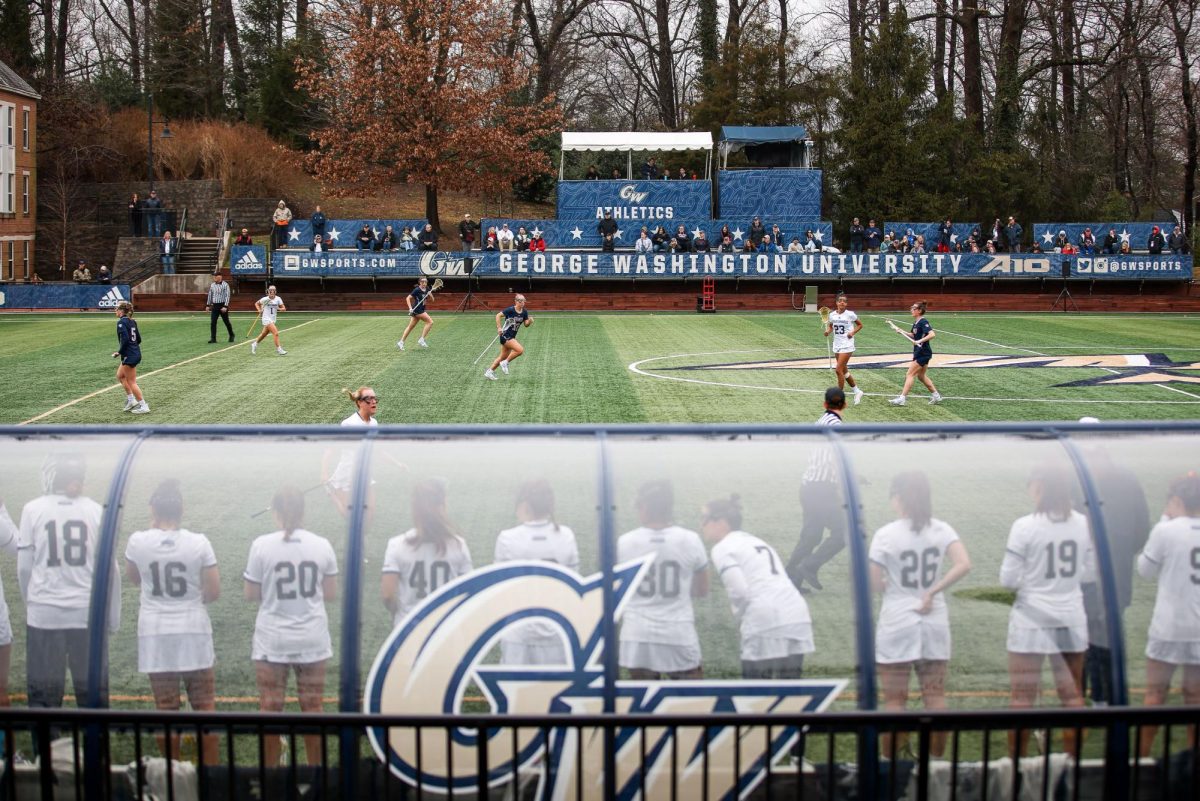The players suck and the coach is an idiot. The general manager has absolutely no clue what he’s doing and you could do it better, if you only had the chance. But you know that chance will never come because only 30 people at a given time are actually empowered to run a professional football team. And therein lies the appeal of fantasy football.
“This is your chance. They call it ‘fantasy football’ for a reason – because it’s a way to feel a part of the real thing without actually being a part of the real thing,” said ESPN.com’s fantasy writer/analyst Brandon Funston. “The appeal of being the GM and making the moves and having the power to run everything – that’s the thrill of it.”
More people are feeling that thrill each year, as the popularity of fantasy football and fantasy sports in general continue to grow at a phenomenal rate. Funston estimated that 2 million people worldwide played fantasy sports when he was hired by ESPN in 1996. Just seven years later, a survey by the Fantasy Sports Trade Association determined that there are more than 15 million fantasy players worldwide, and 93 percent of them play football.
For a more unscientific approach to gauging fantasy football’s popularity, a Google search of the term “fantasy football” produced 1.25 million results. In comparison, tennis vixen and Internet queen Anna Kournikova resulted in fewer than 750,000 Web hits, meaning more of cyberspace is dedicated to a football fantasy than a female fantasy.
This popularity is also notable at GW. Of the 13 fraternities on campus, more than half now have fantasy football leagues. Sophomore Wes Johnson started the Pi Kappa Phi league this year after a successful fantasy baseball debut over the summer.
“We’ve got a lot of sports fans in the fraternity, and this is another incentive to be on top of what’s going on,” he said.
Junior Drew Ledbetter has played in Phi Sigma Kappa’s league since he was a freshman.
“Draft day is like a party,” he said. “You just sit around with your friends and eat and have fun. It’s something we look forward to each year.”
While the Pi Kappa Phi league is played through Yahoo Sports online, Phi Sigma Kappa still conducts its league on paper, harkening back to fantasy sports’ beginnings in the early-to-mid-1980s. At that time, the countless fantasy magazines in bookstores today did not exist and the numerous fantasy analysts like Brandon Funston were just kids.
Now 33 years old, Funston began his fantasy career during high school, when a priest hired him and his friend to run a fantasy baseball team in 1986.
“This priest would come out to his balcony and drop money down to us like he was the Lord,” Funston said. “And we would run off and buy sports magazines and do our research and stuff.”
Over the years, Funston continued to play with friends while fantasy sports slowly drew a following. It was the perfect recreation for statistics geeks and a good way to test whether everyone really knew as much as they thought they did. And then, similar to many industries, the Internet boom catapulted fantasy forward.
Web sites started creating programs that allowed people to run their leagues and teams through the Internet. ESPN.com hired Funston when the Web site created its fantasy section in 1996. Sites like CBS Sportsline, Fox Sports and Yahoo followed suit. The number of participants doubled in each of the first few years at ESPN, Funston said, and the demand for information increased accordingly.
While teams and leagues were originally free, site after site started charging a membership fee. Of the major sites today, only Yahoo offers a free league, and that is just for the basic package. People have to pay if they want live stats, a Draft Kit, an Assistant Manager or expert analysis features.
This is the first year the ESPN Web site has charged money to read the popular Hector and Victor statistical projection column.
“People love the notion that someone will tell them what their players will do,” Funston said. “There is that desire, and people are willing to pay for it.”
People are also willing to part with their money because of the Internet’s convenience. While paper league commissioners must go through the Monday box scores to find stats and add up totals, Internet sites provide those numbers as they happen, and Web sites allow fantasy owners to make transactions or propose trades at any time. The online message boards also provide a perfect place for the customary trash talking in each league, although fraternities on campus said they talk mainly in person.
“Since we see each other walking around, some of it doesn’t end up on the message board,” Johnson said. “But there’s definitely a lot of trash talking.”
Doing their best Shannon Sharpe or Warren Sapp imitations is just another appealing aspect of fantasy football, Ledbetter said, while it also creates an additional incentive to win.
“On Sunday we sit around the house, watch the games and talk about who we started,” he said. “And if you beat your guy that week, you get to trash talk him for the rest of the week. So you don’t want to lose.”
Perhaps the only negative of fantasy football is the inherent schizophrenia involved. Most fantasy owners have their fantasy team as well as their favorite real team playing on Sunday. And, inevitably, a player on their fantasy team will end up playing against their favorite team.
“I always say there is room for both (to succeed), but the bottom line is, your (real) team has to win,” Funston said. “They don’t have to win in a blowout, so you can still root for your fantasy player to score a touchdown, but it can’t make a difference in the overall result. It is tough, but I always tell myself I’m a sports fan first, and I have to stay with my team.”
When someone starts rooting for his or her fantasy team over his or her real team, “that’s when the system has gone awry,” he said.
So far, the fantasy football system has been beneficial for both the NFL and football fans alike. While most fans outside of Ohio could normally care less about a Bengals-Browns game, fantasy owners with players on those teams will want to follow every minute. Funston said he thinks this demand only adds to the popularity of Direct TV, which offers a season-long package called Sunday NFL Ticket that allows viewers to watch every Sunday game.
“Most average fans wouldn’t buy the package if they just want to watch their local team,” he said. “But the guys buying Sunday Ticket are fantasy players and gamblers, and that’s become a huge business.”
“Huge” may be an understatement. In 2002, Direct TV and the NFL inked a five-year deal that will pay the NFL a total of $2 billion. But just as the NFL profits, fans involved in fantasy football profit, too, and not just monetarily.
Ledbetter said that six fraternity members who graduated last year are in an online league together this year, despite their various locations. And Johnson said he has already seen the way fantasy sports allow people to stay connected.
“During high school I had a friend who went to private school, and I rarely saw him throughout the year,” he said. “But he was always in our fantasy leagues, and I found it was a good way to keep in touch. And the same can apply for after college.”
In Funston’s experience, the same often does apply after college.
“College is where we see that a lot of people make that jump into fantasy,” he said. “That’s where it takes off and that’s where you might meet the group of people you’ll play with for the rest of your life.”
As for the future of fantasy football, Funston said the game will only get better as technology advances. He envisions more wireless integration involved with leagues so owners can make transactions even when they are away from a computer. He also said he believes the computer and television as separate entities will end soon and the two will be combined.
Based on that vision, the near future could allow fantasy players to make moves with the same television remote they use to switch from game to game. As the action unfolds, the armchair quarterback could become the armchair general manager. And with that kind of power, the fantasy might just become better than reality.






